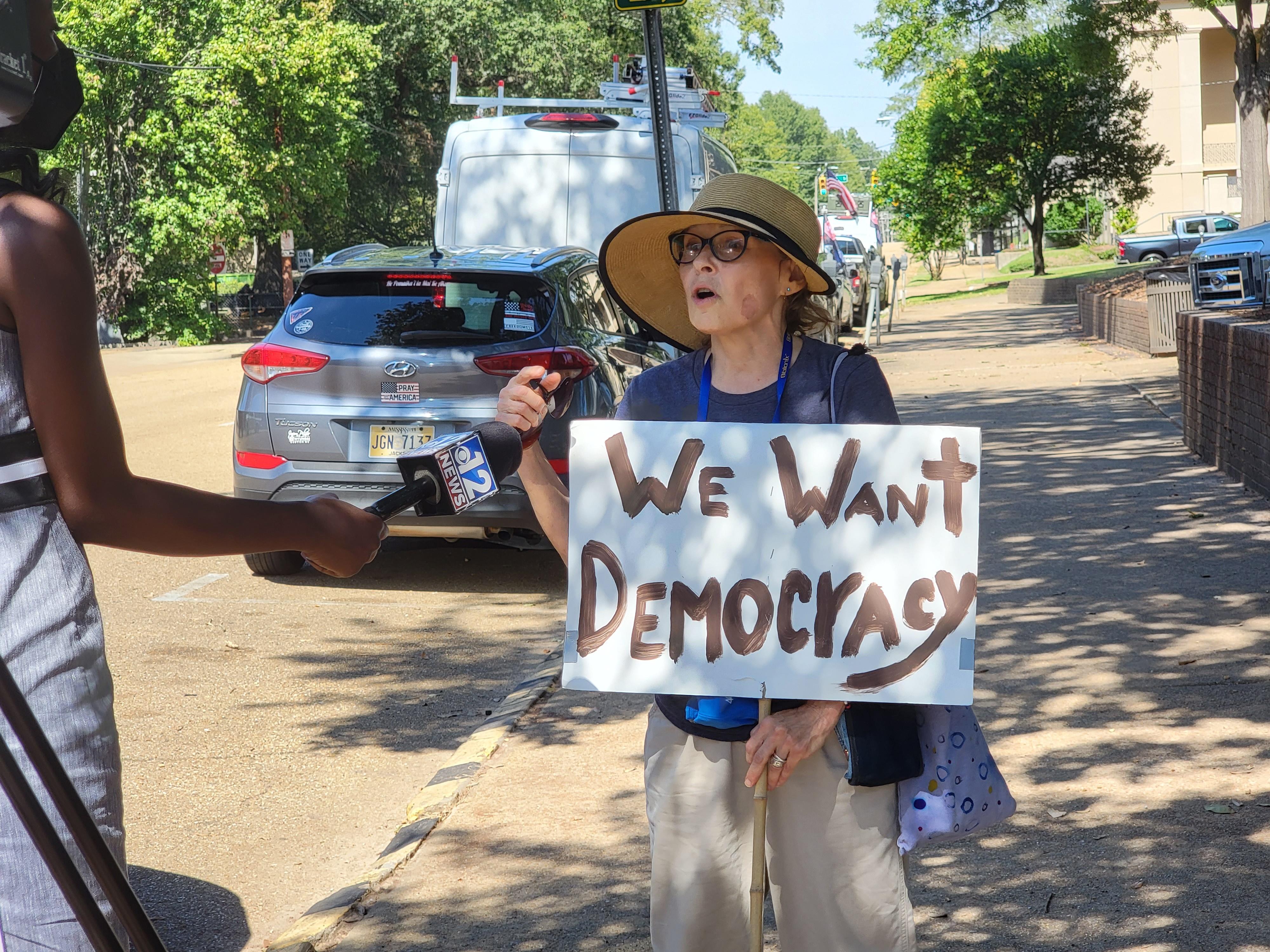Protests organized in six cities across Mississippi are calling on state lawmakers to legalize medical marijuana.
Most protesters are members of the medical marijuana advocacy movement We Are the 74, a Facebook group that has nearly 15 thousand members. Advocates say they represent the 74 percent of Mississippians who voted to adopt a medical marijuana program in last November’s election. This summer, the state supreme court this summer ruled the ballot initiative process unconstitutional which overturned the amendment.
At a protest outside of the Governor’s Mansion in Jackson, David Singletary of Florence says lawmakers need to implement a medical marijuana program soon.
“Our vote was not considered, and how 74% of the people are having to bow down to 26% of the people who are rich and run the state,” says Singletary. “The meek and the weak shall inherit the earth, but why are the rich and the powerful screwing it up?”
Rallies were also held in the cities of Biloxi, Hattiesburg and Tupelo.
Governor Tate Reeves has said he will call a special session but hasn’t given a timeline for when it will be held.
But some protesters are concerned that lawmakers are not adhering to the same language used in the ballot initiative. Lucy Ogden of Jackson says the bill proposed by lawmakers recently ignores what voters chose.
“There were people that put a lot of thought and a lot of research into the [ballot initiative] 65,” says Ogden. “From what I understand, the bill [proposed by lawmakers] is going to let a few people buy the license or something to grow. It took everything away that was in the bill, and it’s a substitute. A weak substitute.”
Some state officials have criticized the bill for medical marijuana drafted by lawmakers, saying it would be costly and spread oversight across too many state agencies.




